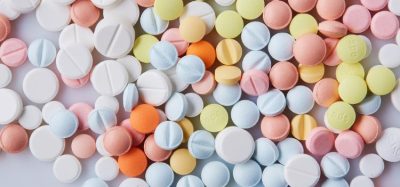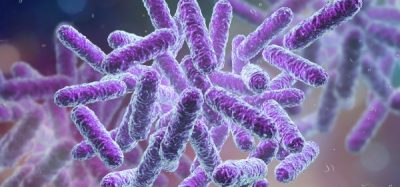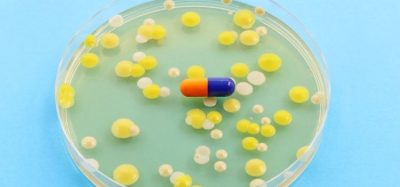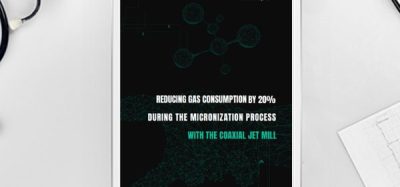Alliance to Save our Antibiotics: antimicrobial resistance ‘to kill one person every 3 seconds by 2050’
Posted: 13 September 2016 | | No comments yet
Following an article about the worrying presence of E.coli in UK supermarkets, our sister title New Food caught up with Emma Rose from Alliance to Save Our Antibiotics for an exclusive interview discussing the latest issues facing antibiotic resistance…
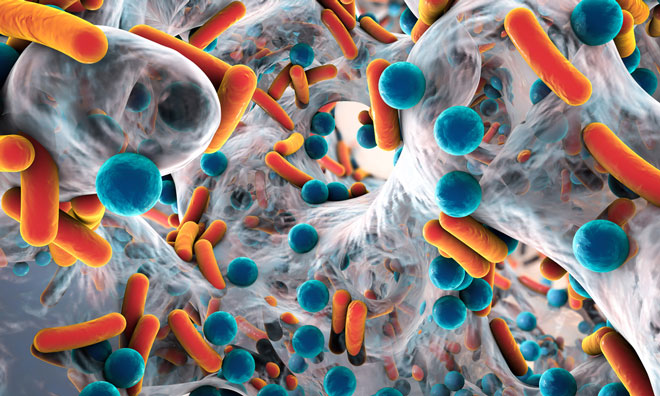

Following an article about the worrying presence of E.coli in UK supermarkets, our sister title New Food caught up with Emma Rose from Alliance to Save Our Antibiotics for an exclusive interview discussing the latest issues facing antibiotic resistance…
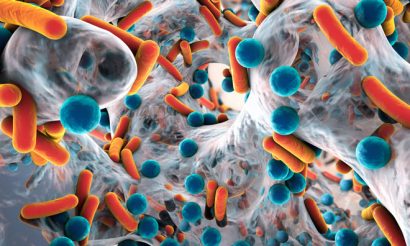
Could you give our readers a brief explanation of the study and why it was undertaken?
The study, commissioned by the Alliance to Save our Antibiotics and carried out by scientists at Cambridge University, looked at 189 UK-origin pig and poultry meat samples from the seven largest supermarkets in the UK (ASDA, Aldi, Coop, Morrisons, Sainsbury’s,Tesco and Waitrose). It tested for the presence of E. coli which are resistant to the key antibiotics for treating E. coli urinary-tract and blood-poisoning infections in people.
The study aimed to identify the levels and extent of antibiotic resistance in dangerous E. coli bacteria on UK chicken and pig meat – and to shine the spotlight on the human health risks of the overuse of antibiotics is farming. With antibiotic resistance in human E. coli infections increasing dramatically across Europe, and a 35 year discovery gap of new antibiotics which are able to treat these deadly infections, it is vital that we do all in our power to protect the drugs which are left. This means that the systematic overuse of antibiotics important for human medicine in our farming systems must stop.
What conclusions can we draw from the study?
Across pig and chicken meat from all these supermarkets, the study found E. coli bacteria resistant to three highly important antibiotics for treating E. coli infections in people. The findings provide further evidence that the overuse of antibiotics on British farms is undermining the treatment of dangerous E. coli infections in humans.
Roughly 40% of total UK antibiotic use is in farm animals
The research found soaring levels of resistance in chicken meat, with a staggering 24% of chicken samples testing positive for ESBL E. coli, a type of E. coli which is resistant to a family of antibiotics classed as ‘critically important’ for people (the cephalosporins). This is four times higher than was found during a similar study in 2015 in which just 6% of chicken tested positive for ESBL E. coli. The cephalosporins are widely used for treating life-threatening E. coli blood poisoning in humans.
On 19% of pig and chicken meat, E. coli bacteria showed high levels of antibiotic resistance to the Gentamicin, which is of vital importance in treating serious urinary-tract infections in people. Resistance to another essential antibiotic, Trimethoprim (which is the most widely used drug for treating lower urinary-tract infections in people) was found in 51% of pork & chicken samples.
These findings are a major concern as scientific evidence increasingly suggests that the overuse of antibiotics in intensive farming is contributing, via the food chain, to the increasing levels of resistance being found in human E. coli infections. While antibiotic consumption in human medicine is also a major reason for the increasing resistance, some scientists argue that the farm contribution is so important that for antibiotic-resistant E. coli; ‘We are what we eat’.
What is causing resistance to the antibiotics in question and why are antibiotics being misappropriated in such a way?
Antibiotic resistance is a natural phenomenon, which is being fuelled by the overuse of antibiotics in both human and animal medicine. But, while antibiotics are used in human medicine to treat the sick, in veterinary medicine antibiotics are often given to whole groups of healthy animals. Many key antibiotics – including a number of those examined in the study – are used in far greater quantities in livestock farming than in human medicine, often given to whole groups of (mostly healthy) animals.
It is currently legal within the EU to routinely and preventatively mass-medicate whole groups of livestock via their feed or water, even when no disease has been diagnosed in any of the animals. Mass medication (mainly of pigs and poultry) accounts for 85-95% of total veterinary antibiotic use in the UK. Pigs and poultry are often kept in intensive conditions where the risk of disease is high, and disease outbreaks are harder to control – meaning that routine medication plays a central part in keeping animals healthy. What’s more, drugs classed as ‘critically important’ for people by the World Health Organisation may be used. Antibiotics are the cornerstone of intensive, indoor farming systems – without them, animals would be far less likely to remain healthy in crowded conditions.
The antibiotic resistance crisis is predicted to kill one person every 3 seconds by 2050.
This systematic overuse of antibiotics in livestock is fuelling the emergence of resistant bacteria. These superbugs can then pass to humans through the environment, through direct contact with animals, or via meat that we handle or eat.
In terms of the specific antibiotics we tested for:
Trimethoprim is commonly used to mass-medicate groups of animals via their feed or water, and significantly more trimethoprim is used in animals than is used in human medicine. Gentamicin is anaminoglycoside antibiotic, and about 20 times more aminoglycosides are used for mass medication in farming than in human medicine. Gentamicin is not licensed for use in farming, but scientists have proven that the use of a closely related antibiotics (an aminoglycoside called apramycin) can ‘co-select’ (or contribute to) gentamicin resistance in human E. coli infections.
Cephalosporins are licensed for use in pigs. In 2012, the UK poultry industry introduced a voluntary ban on the use of the cephalosporins. Penicillins are widely used in pigs and poultry, although total veterinary use represents less than one third of human use.
How worried should we be?
“We should be extremely concerned”
Antibiotic resistance in human E. coli infections in the UK and across Europe has increased dramatically this century. Higher antibiotic resistance is leading to more treatment failures, record levels of serious blood-poisoning infections and increasing numbers of deaths.
The antibiotic resistance crisis is predicted to kill one person every 3 seconds by 2050. Over a third of these deaths will be caused by drug-resistant E. coli.
We are facing a very serious problem, and we are already seeing the consequences of our complacency. Globally, 70% of bacteria have now developed antibiotic resistance, including to drugs seen as our last line of defence, and antibiotic resistance in farm animals and certain human infections increasing across the EU.
We are facing a future where routine infections may once again kill, and routine operations like hip replacements become too risky for doctors to carry out. Even cancer chemotherapy will be threatened if we lose the ability to prevent bacterial diseases from infecting vulnerable patients. We are steadily travelling back along the path of progress, and unless we act fast to reverse this trend, our ability to treat and cure human disease and infection will be at stake.
What preventative measure and solutions to the problem can we take?
The routine preventative mass medication of groups of livestock must stop. Farm-use of the ‘critically important’ antibiotics must be dramatically reduced – and only used when no other drugs are available. And farms animals must be kept in humane and higher welfare conditions which reduce the need for antibiotics in the first place.
Supermarkets must shoulder some of the responsibility for tackling this crisis. While GPs, nurses, pharmacists and dentists have been constantly urged to rein in inappropriate prescription practices, most food retailers continue to permit unacceptable antibiotic use within their supply chains. While some – such as Sainsbury’s and Waitrose – do have antibiotic-use policies in place, routine preventative mass-medication of groups of animals is still widely permitted across the industry.
Mass medication (mainly of pigs and poultry) accounts for 85-95% of total veterinary antibiotic use in the UK.
Supermarkets are crucial stakeholders within the AMR issue due to their domination of the grocery market. Greater pressure needs to be brought to bear on retailers to use their vast buying power to protect public health, and to support farmers to reduce antibiotic use – whilst agreeing to potentially absorb some of the operational challenges that this presents. Crucially, they must support livestock systems where animals are kept healthy through good welfare, not routine medication.
This will necessitate a shift in how we define productivity and acceptable levels of animal welfare. It will also mean that food retailers will have to pay a reasonable price for animal products. The often low prices paid to by farmers from supermarkets leads to continuous efforts increase productivity – meaning that animals are pushed to their natural limits and are more prone to disease.
Does Brexit provide the UK with the opportunity to rethink its approach to antibiotic resistance and regulation?
With the forthcoming renegotiation of the UK’s food and farming policies and subsidies – many of which are currently defined at EU level – the UK government now has an opportunity to reshape these to ensure that public money is genuinely attached to the delivery of public goods; a principle which many feel the CAP has failed to deliver in practice.
Responsible farm antibiotic use must be included within a simplified, cost-effective subsidy programme, which recognises the critical implications of veterinary prescribing on public health.
The often low prices paid to by farmers from supermarkets leads to continuous efforts increase productivity.
The European Parliament has proposed an EU-wide ban to the routine preventative use of antibiotics in group of entirely healthy animals. The UK government has repeatedly stated their opposition to such practices but has pointed to current EU negotiations on veterinary medicines as a reason for inaction. With the UK set to leave Europe, the government is no longer bound by such constraints.
It is imperative that we now see ambitious unilateral action on farm antibiotics which mirrors this rhetoric. As part of any post EU Referendum strategy for the UK, the government must now take ambitious unilateral action, and implement a ban to routine preventative mass-medication of groups of healthy animals. In addition, domestic regulation must be put in place to dramatically curb farm use of the ‘critically important’ antibiotics.
Post Brexit, there is a risk that less favourable market conditions will increase the pressure on farmers to intensify production and increase antibiotic use, and that mitigation measures may be side-lined in the drive for ambitious new trade deals.
But there is a real transformative opportunity here; one that could see the current dependency on antibiotics replaced with resilient, higher-welfare farming model which safeguards human and animal health.
Failure to grasp this opportunity will be costly, and the price will ultimately be paid in human lives.



